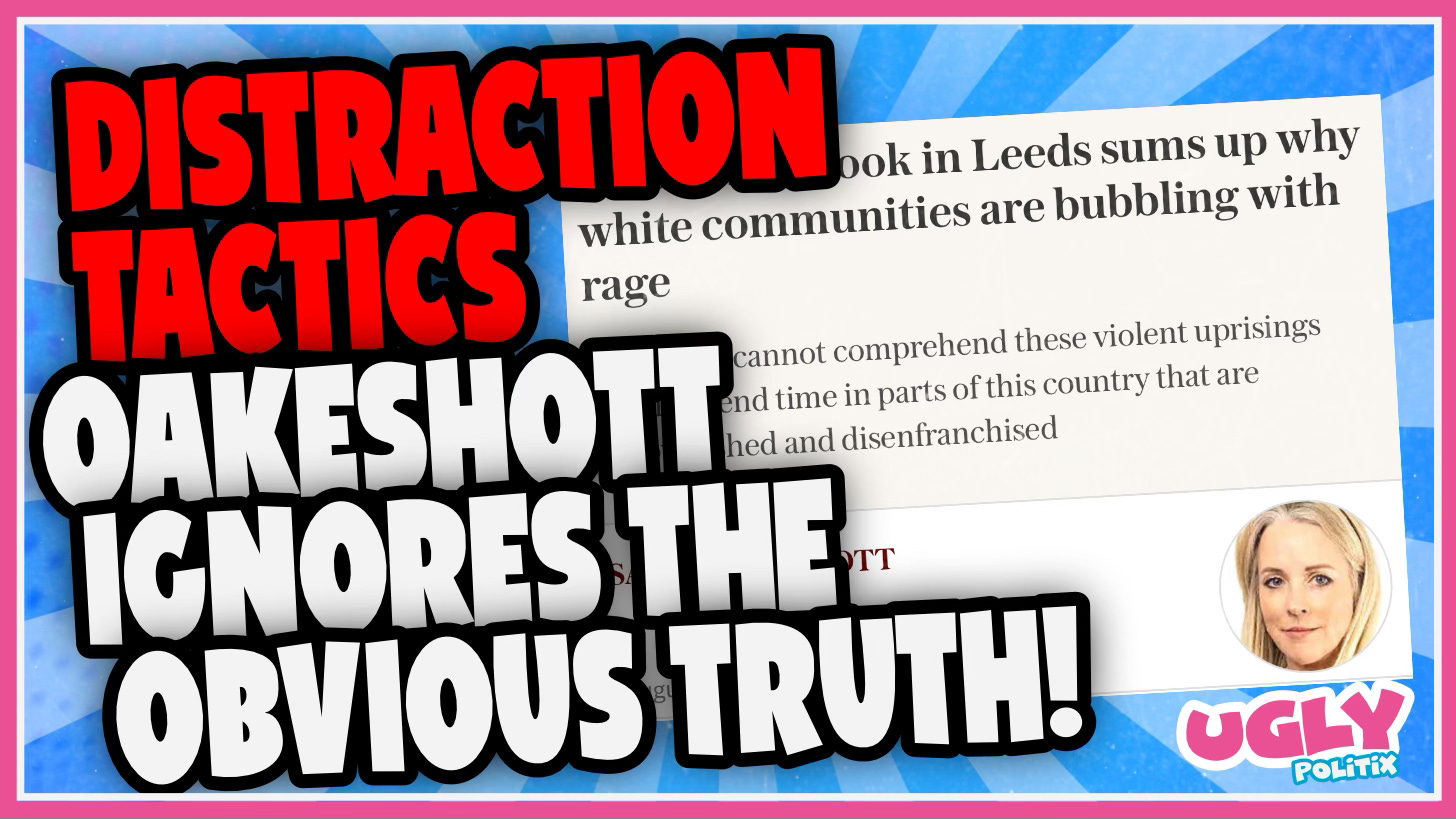Isabel Oakeshott's recent piece on the conditions in Leeds' Harehills area paints a grim picture of social deprivation in modern Britain. The squalor she describes is indeed shocking and unacceptable in a wealthy nation like ours. However, her attempt to link these longstanding issues to recent right-wing violence is misguided at best and disingenuous at worst.
Social deprivation is not a new phenomenon in the UK. For generations, pockets of extreme poverty have existed alongside areas of great wealth. This inequality is a stain on our society and absolutely must be addressed. But to suggest that these conditions are the primary driver of recent far-right unrest is to fundamentally misunderstand – or willfully misrepresent – the true causes of this violence.
The anger we're seeing on our streets has a much more obvious source: it is the result of decades of manufactured outrage, carefully cultivated and misdirected towards outsiders by right-wing journalists and politicians. Oakeshott herself has been a key player in this dangerous game, using her platform to stoke fears about immigration and promote a destructive Brexit agenda devised by wealthy elites far removed from the realities of life in places like Harehills.
It's a cruel irony that those most affected by austerity and economic mismanagement are being encouraged to blame their misfortunes on immigrants and asylum seekers, rather than on the policies and politicians truly responsible for their plight. The Brexit project, championed by Oakeshott and her circle, has only exacerbated these issues, leading to economic instability and further social division.
While Oakeshott wrings her hands over the conditions in Leeds, she conveniently ignores her own role in creating the toxic atmosphere that has made such violence possible. Her close ties to the Reform Party and its predecessors, as well as her history of controversial and often dubious reporting, make her an unlikely champion for the downtrodden.
Let's be clear: the social issues Oakeshott describes are real and urgent. They demand immediate attention and action from our government. But the solutions to these problems must not be shaped by the ideas driving violent thugs on our streets, nor by the rhetoric of disingenuous far-right journalists or the political opportunists in Reform UK.
Instead, we need a comprehensive approach that addresses the root causes of inequality and social deprivation. This means investment in education, healthcare, and social services. It means creating real economic opportunities in neglected communities. And crucially, it means fostering a sense of shared identity and common purpose, rather than divisive narratives that pit different groups against each other.
Oakeshott's article, with its emotive descriptions and carefully chosen anecdotes, may resonate with some readers. But we must look beyond such surface-level analysis to understand the true dynamics at play. The rage we're seeing is not a natural consequence of poverty or immigration. It's a carefully cultivated product, nurtured by those who stand to benefit from social division and political upheaval.
As we work to address the very real issues of deprivation and inequality in our society, we must also confront the toxic narratives that have brought us to this point. Only by rejecting the politics of division and embracing a truly inclusive vision for Britain can we hope to build a society that works for all its citizens, regardless of their background or circumstances.
The children of Harehills deserve better – not just cleaner streets and better opportunities, but a future free from the poisonous ideologies that threaten to define their lives before they've even begun. It's time for journalists like Oakeshott to take responsibility for their role in creating our current crisis, rather than using it as fodder for yet more divisive rhetoric.






Oakeshott is just one of the so-called “journalists” who have fanned these flames. You can add Alison Pearson, Amanda Platell, Sarah Vine, Andrew Neil and many others to a very long list.
It's worth noting that a related issue is the treatment of "pockets" and thinking in terms of "neglected communities". Extreme poverty exists in a way that's much more hidden from national view within wealthy areas, particularly out in rural parts of England and parts of Wales; the places in question are desirable places to live. As a result many living there are well above national average incomes/wealth, but this hides the reality of poverty in those areas (unrelated to property prices).
Living in an area of a few square miles that includes houses of billionaires and multi-millionaires, senior lawyers, CxOs of large organisations etc., results in average stats that say "this place is fine, nothing to see here", but the reality for those living in that area on long term sick or unemployed, or on minimum state pensions or even on minimum wage jobs for which they have to fund travel (no, there's no buses or trains) is that they are poor. And even that they are worse off, financially, than those that live in the areas that make the news.
Socially of course they are better off; they are much more a part of the wider community, their children and grandchildren go to the same pre-schools, primary schools and parks. But they are nonetheless poor.